9 ERP Features You Need for Knockout CRM
Customer relationship management (CRM) is a component of most ERP systems today. In the past these systems were stand-alone, but much of the data is common and usually a completely integrated system is far more efficient, and far more common.
Quoting
Customers want to know how much something will cost and when can they have it. For some businesses this is simply what is on the store shelf right now. For others this requires detailed estimates of time, materials and subcontract costs with the adding of contribution to overhead and profit. A good quote system is an invaluable ERP CRM function. It will model what is required by the customer and provide a framework to collect and analyze ERP data leading to a good quote. CRM will also track what quotes were won and why others were not.
Prospecting
All businesses need new customers. Developing customers is called prospecting. ERP CRM can track who we contacted, how we contacted them and when. We can plan strategies and CRM will signal what the next contact should be and when it needs to happen.
Customer-Centricity
CRM is completely customer centered. While overall ERP is focused inside our business, CRM looks outside. Who are our customers? What have they bought? Who else should be our customer? What are we doing to make them a customer? Who used to be a customer and what are we doing to recapture them?
Historical Analysis
Every contact of any kind can be captured. By looking at the past we can see what has worked and what hasn’t and develop plans to use the best techniques in the future.
Milestones
ERP CRM functionality keeps track of our efforts with each customer. It will record milestones such as the first order or the millionth order. It will help us reach future milestones such as finally getting a meeting with the CEO of a target prospect.
Marketing
CRM can collect our marketing efforts in a single depository. How well did our ads lead to sales using which media? What is the click-through for this campaign? Are we targeting the right businesses and networks?
Buying Habits
ERP CRM can track what kind of products a customer orders and which options are selected. It can track by customer specifically or across all customers. It can watch for seasonality in orders and make that data available for improved forecasting.
Booking
This is the moment a customer order is placed. It is the result of the prospecting and quoting that preceded. When the order is booked, the ERP system transfers demand to other systems and begins the planning of materials and capacity to manufacture the order or deliver the service.
Contacts
Every person in a customer or prospect business might be valuable in delivering your product or service. The contact manager is a part of CRM that keeps track of names, phone numbers, roles, etc. Those names are linked to the history of contacts made.
Free white paper
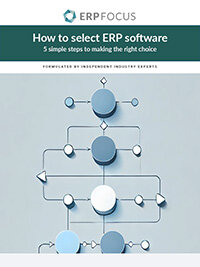
How to Select ERP
Learn to select your ERP in 5 easy steps by following our expert's advice
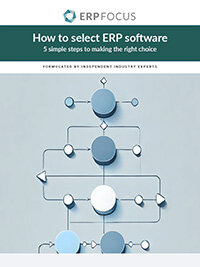
Featured white papers
-
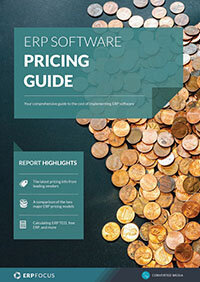
ERP Software Pricing Guide
Get the latest pricing information on over 80 popular ERP systems, and learn how to budget for your ERP project in our free guide
Download -
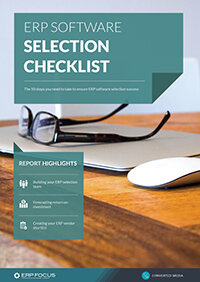
60-Step ERP Selection Checklist
Get the comprehensive checklist for your ERP selection project
Download -
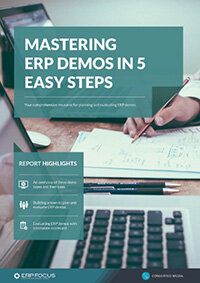
ERP Demo Guide & Scorecard
Master your ERP demo with 5 easy steps using our free guide (includes demo scorecard)
Download
Related articles
-

The best ERP systems for process manufacturing
Consider these ERP systems when selecting your next process manufacturing ERP
-

Secret KPI: Why Your ERP Implementation Team Matters More Than Software
Learn how Godlan ensures successful ERP implementation for manufacturers with proven strategies &...
-

5 ERP pricing definitions you need to understand
Have you mastered the ERP pricing lexicon yet? Getting to grips with these five definitions is a ...

